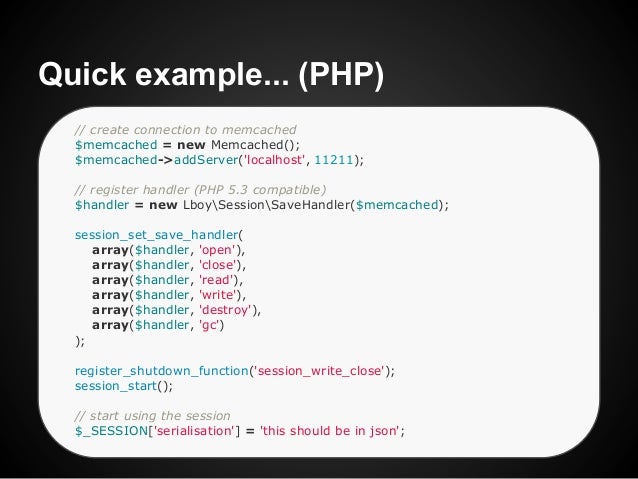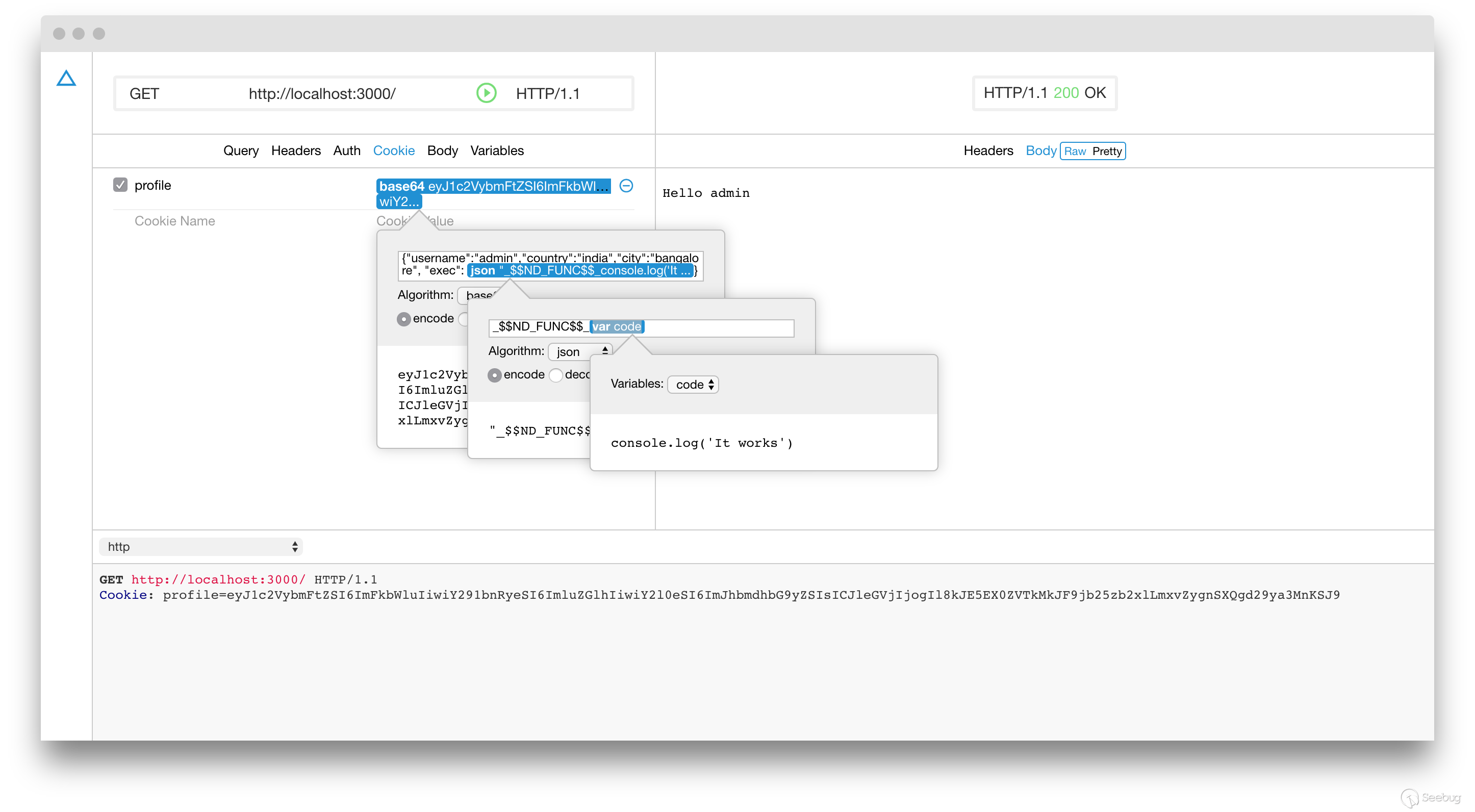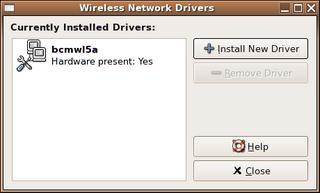Node Js Php Serialize Cookie
Session handling in any web application is very important and is a must-have feature, without it, we won’t be able to track user and it’s activity.In this article, I am going to teach you how to handle Session in Node.js. We will use express as a framework and various other modules such as body-parser to handle form data.At the time of writing article, the latest version of Express is 4.16.4.
What we are buidingTo demonstrate Session handling in Node, I have developed a basic Log-in and log-out System. In this User can log-in by providing their email, and that email will be used for further Session tracking. Once User log-out, Session will be destroyed and User will be redirected to the home page.
Creating Node ProjectLet’s create a new Node project. Create a new folder and switch to it using the terminal.Run this command to create a new Node project.
Var setCookie = cookie. Serialize( 'foo ', 'bar ');// foo=bar Optionscookie.serialize accepts these properties in the options object. DomainSpecifies the value for the. By default, nodomain is set, and most clients will consider the cookie to apply to only the current domain. EncodeSpecifies a function that will be used to encode a cookie's value. Since value of a cookiehas a limited character set (and must be a simple string), this function can be used to encodea value into a string suited for a cookie's value.The default function is the global encodeURIComponent, which will encode a JavaScript stringinto UTF-8 byte sequences and then URL-encode any that fall outside of the cookie range. ExpiresSpecifies the Date object to be the value for the.By default, no expiration is set, and most clients will consider this a 'non-persistent cookie' andwill delete it on a condition like exiting a web browser application.note the states that if both expires andmaxAge are set, then maxAge takes precedence, but it is possible not all clients by obey this,so if both are set, they should point to the same date and time.

HttpOnlySpecifies the boolean value for the. When truthy,the HttpOnly attribute is set, otherwise it is not. By default, the HttpOnly attribute is not set.note be careful when setting this to true, as compliant clients will not allow client-sideJavaScript to see the cookie in document.cookie. MaxAgeSpecifies the number (in seconds) to be the value for the.The given number will be converted to an integer by rounding down.

By default, no maximum age is set.note the states that if both expires andmaxAge are set, then maxAge takes precedence, but it is possible not all clients by obey this,so if both are set, they should point to the same date and time. PathSpecifies the value for the.

Php Serialize Format
By default, the pathis considered the. $ npm test Benchmark $ npm run bench cookie@0.3.1 bench cookie node benchmark/index.jshttpparser@2.8.0node@6.14.2v8@5.1.281.111uv@1.16.1zlib@1.2.11ares@1.10.1-DEVicu@58.2modules@48napi@3openssl@1.0.2o node benchmark/parse.jscookie.parse6 tests completed.simple x 1,200,691 ops/sec ±1.12% (189 runs sampled)decode x 1,012,994 ops/sec ±0.97% (186 runs sampled)unquote x 1,074,174 ops/sec ±2.43% (186 runs sampled)duplicates x 438,424 ops/sec ±2.17% (184 runs sampled)10 cookies x 147,154 ops/sec ±1.01% (186 runs sampled)100 cookies x 14,274 ops/sec ±1.07% (187 runs sampled)References.License.
